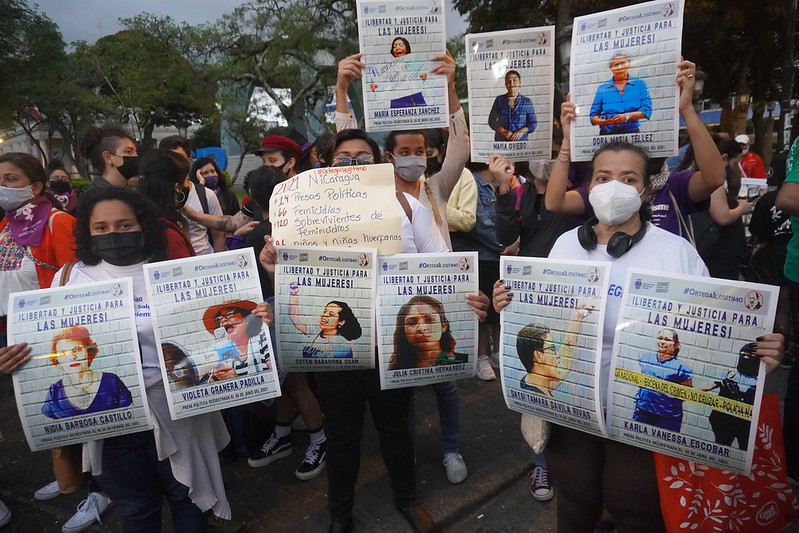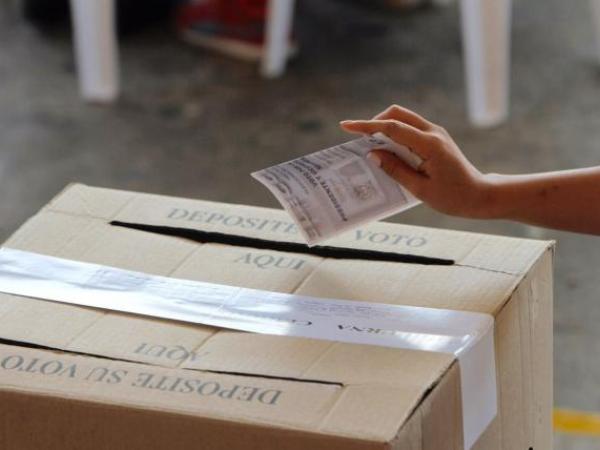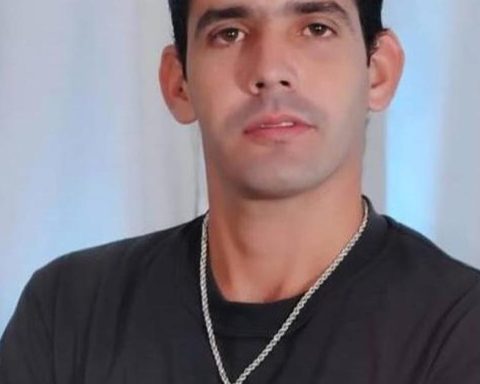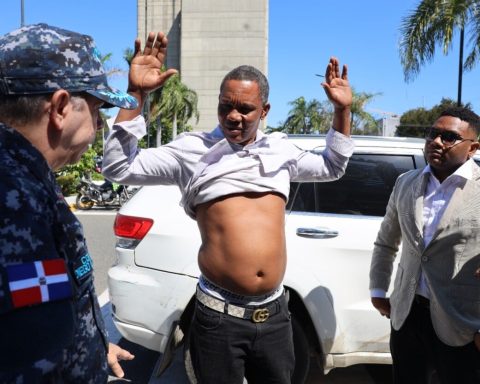Feminists from different countries around the world “shouted” this Thursday for the 14 opposition leaders and political prisoners in Nicaragua, with the aim of pressuring them to be released.
The demand for freedom for Nicaraguan opponents It took place in a virtual panel entitled “International feminist court for the freedom of political prisoners in Nicaragua”, in which activists from different countries of America and Europe participated, as well as relatives of the convicts.
Of the 176 political prisoners in Nicaragua, 14 are women, aged between 22 and 70 years. The detainees are: Ana Margarita Vijil; Cinthia Samantha Padilla Jiron; Christiana Chamorro Barrios; Dora Maria Tellez; Eveling Pinto; Julia Hernandez; Carla Escobar; Maria Esperanza Sanchez; Maria Fernanda Flores; Maria Oviedo; Nidia Barbosa; Suyen Barahona; Tamara Davila; and Violet Granera.
“I share the demand for the total freedom of women and all political prisoners in Nicaragua,” said the former Swedish ambassador in Managua Eva Zetterberg (2003-2008), whom the government of President Daniel Ortega accused at the time of meddling in the affairs internal.
“We are with the crisis in Ukraine, but it does not mean that we can forget the situation of other suffering peoples. The knowledge of these 170 political prisoners, including 14 women, is a credible sign that Nicaraguans really live in a dictatorship,” he said.
American writer Margaret Randall, author of the book “Hijas de Sandino,” described the situation of women in Nicaragua as “titanic,” especially those who are “unjustly imprisoned for the sole crime of advocating for justice and peace.”
According to the director of the Global Institute for Women in the United States, Mery Ellsberg, the Ortega government had already been closing democratic spaces and gender policies in Nicaragua since before the popular revolt that broke out in April 2018.
“We already saw that the government was beginning to close democratic spaces and dismantle all programs and policies to confront gender violence, and in 2018, with the April revolution, these programs were completely ended,” said Ellsberg, who studied gender violence in Nicaragua for 30 years, until 2017.
Zoilamerica: “Nicaragua is not alone”
Relatives of the imprisoned opponents denounced before the panel that they suffer mistreatment and different types of torture, including total isolation, artificial lighting or permanent darkness in their cells.
Also interrogations, prohibition of reading and writing material, recriminations, beatings, threats, poor nutrition, lack of medical attention, as well as zero visits, photos or letters from their minor children.
For the director of the “Women, Justice and Gender” Program of the United Nations Latin American Institute for the Prevention of Crime and the Treatment of Offenders, Alda Facio, “these women are in illegal and arbitrary imprisonment.”
Facio warned that Ortega and his wife, Vice President Rosario Murillo, could be tried for “crimes against humanity.”
“The violation of human rights is also a crime against humanity. The (presidential) couple will not be able to defend themselves by alleging that they were not the ones who tortured, since by instigating or benefiting from these tortures, they are made a participant,” he argued.
Activist Zoilamérica Narváez Murillo, daughter of Vice President Murillo who 24 years ago denounced her stepfather, Ortega, for rape, lamented the damage that “unjust” imprisonment will do to victims and future generations, and showed her optimism with the future of convicts.
“Nicaragua is not alone. This women’s concert is here. May the love of Nicaragua embrace our political prisoners and give them the strength to continue forward, in this dark moment in history,” she commented.

















